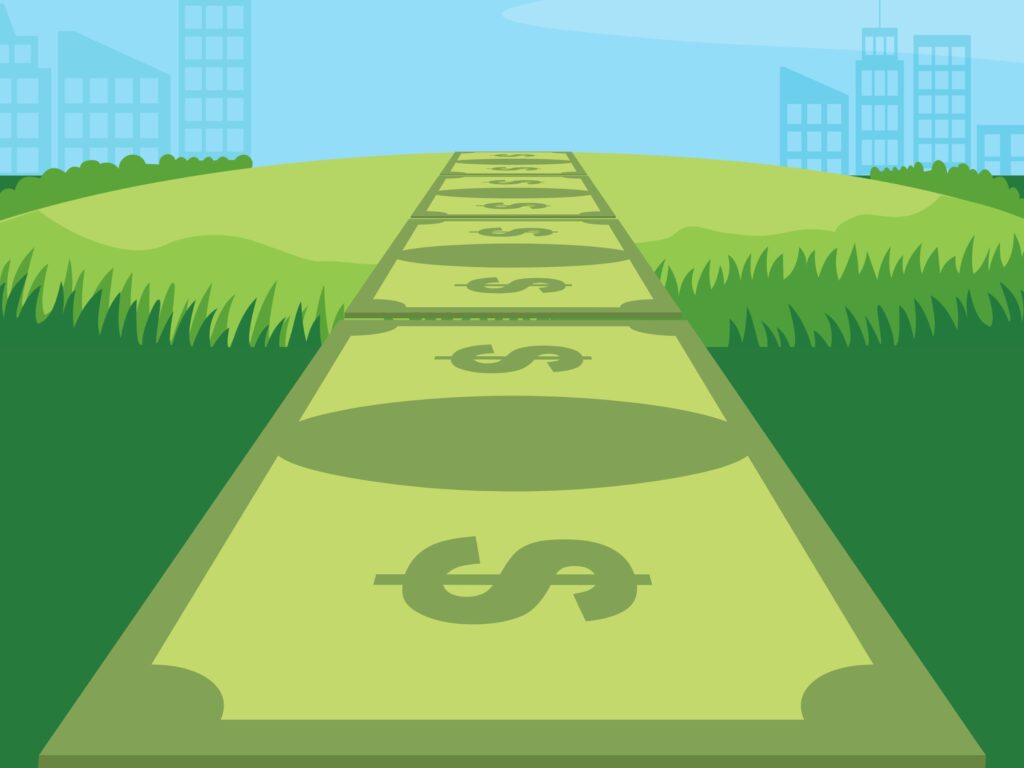Most people site Independence Day when asked about the July holidays, but what about July 1st, also known as National Financial Freedom Day? This overshadowed and less-known designated day focuses on evaluating, motivating, and continuing positive financial habits, a need for most income-generating individuals. As you prepare to celebrate the freedoms we enjoy in our great nation, take a moment to reflect on the status of your finances. Are you living freely?
What is Financial Freedom?
As we each view financial well-being differently, how one defines financial freedom tends to be subjective. However, it is generally defined as having enough financial resources (savings, investments, cash) that an individual is no longer dependent on an active income to sustain a desired lifestyle. Financial freedom defies the idea that success is tied to a traditional job (you working for the money). Instead, it focuses on making your money work for you. This National Financial Freedom Day, learn the stages of financial freedom and get on the road to achieving it.
The Road to Financial Freedom
J.D. Roth from Get Rich Slowly views the path to financial freedom in six steps. In addition to these roadmarks, we’ve included some helpful ways to transition from each stage.
Stage 0: Dependence
You depend on others for financial support and spend more than you earn. Everyone starts here.
Transition strategies:
- Grow your skills via education, internships, volunteer work, etc.
- Learn about your values and money personality (life priorities and goals)
Stage 1: Solvency
You can meet your financial commitments, and your income outweighs your expenses.
Your surplus income goes to debt repayment/financial obligations.
Transition strategies:
- You adhere to your budget
- You adhere to debt repayment strategies
Stage 2: Stability
Aside from large expenses such as your mortgage or student loans, you have little debt.
You’ve established savings in the case of emergencies, and you continue to make a profit.
Transition strategies:
- Learn about compound interest
- Create an emergency fund
- Start your retirement savings
- Invest your money
- Negotiate your salary
- Monitor your credit score
Stage 3: Agency
You have no debt, and enough savings that quitting your job is no longer an outlandish idea, but a possible option.
Transition strategies:
- Practice reinvestment
- Expand your options for passive income streams (real estate, stocks, turn your knowledge into profit)
Stage 4: Security
The income you make through investments can uphold your current lifestyle and basic needs until the day you die.
Transition strategies:
- Expand your options for passive income streams (real estate, stocks, turn your knowledge into profit)
- Consider your options for estate planning
Stage 5: Independence
Your investments sustain your current standard of living and afford some additional
comforts until the day you die.
Transition strategies:
- Expand your options for passive income streams (real estate, stocks, turn your knowledge into profit)
- Consider your options for estate planning
Stage 6: Abundance
You have more than enough to support yourself, share your wealth, or live your life however you want.

The journey from Stage 0 to Stage 6 does not happen overnight (unfortunately). However, the financial habits and decisions you make now can help you transition to higher stages in the future.
We recognize that Stage 3 alone would be living the dream for most people, so if that is your goal, work towards it! As Theodore Roosevelt once said, “Believe you can and you’re halfway there.” Your beliefs motivate your actions, and your actions reap results.
How 1166 FCU Can Help
Take a step toward financial freedom and contact our supportive team. 1166 FCU team members work for the success and prosperity of our community, and we’d be more than happy to provide you with financial guidance and assistance. Choose the path to freedom today.
About 1166 Federal Credit Union
1166 Federal Credit Union, established in 1937, is based in Swedesboro, NJ. We are committed to providing robust financial services, great loan rates, and broad-based financial education to our more than 1,200 current members. Our products include mortgages, student loans, credit and debit cards, checking and savings accounts, ACH access, financial literacy education, and more. The credit union’s unique name references our charter number, but it also adds up to the exceptional service and savings we offer our members. Our philosophy is real people helping real people manage their financial needs.


